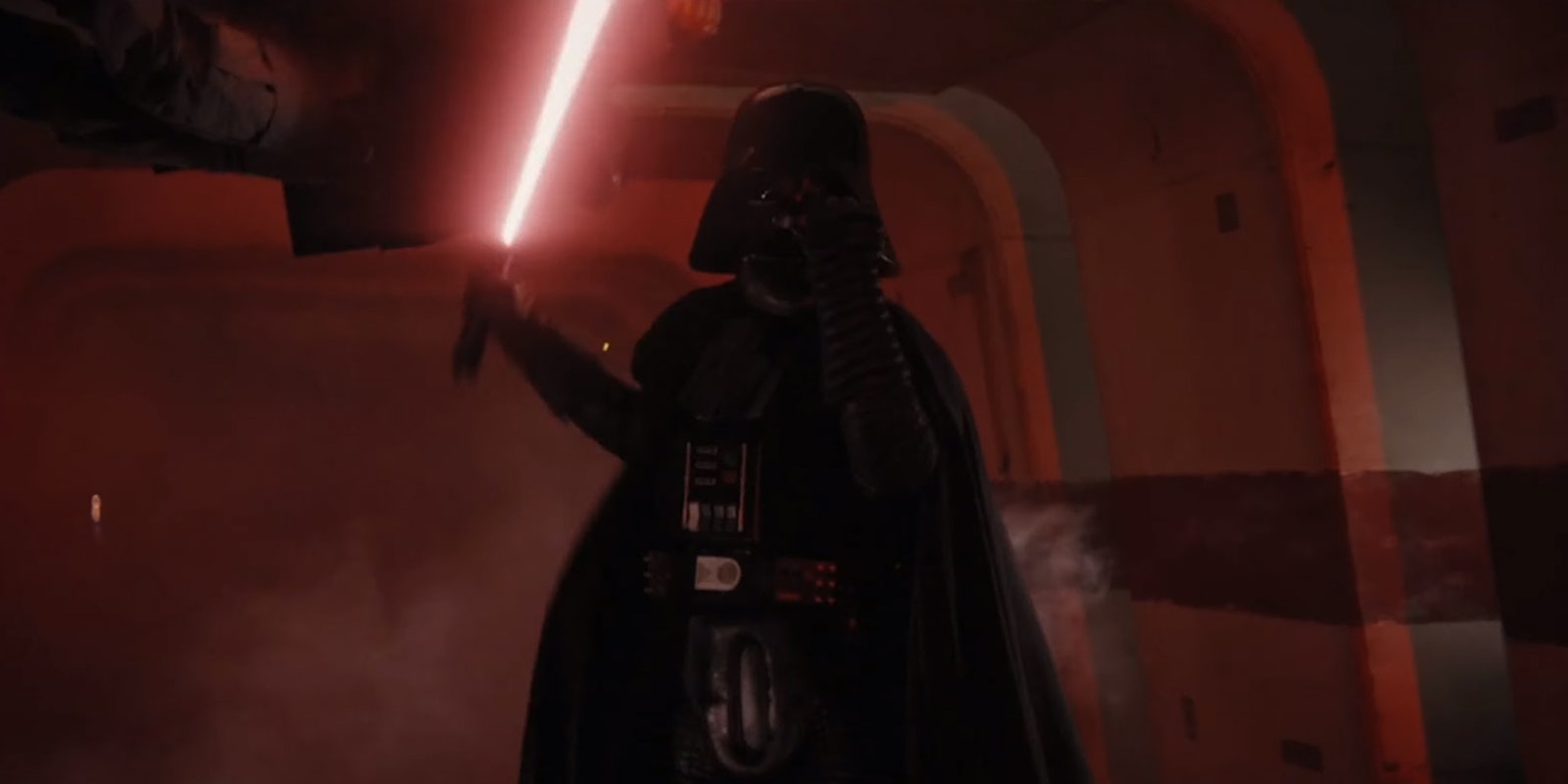Rogue One has a complicated legacy; a film that received mixed reviews at the time, but is viewed by some as one of the best entries in the Star Wars franchise. Behind the scenes, the situation was similarly conflicted.
In the months leading up to release, there were rumors of extensive reshoots, with future Andor showrunner Tony Gilroy stepping in to write (and possibly direct) new material. Then when the film came out, fans were puzzled and intrigued by discrepancies between the trailers and the finished product, with insiders confirming that earlier versions of the film looked very different.
The question of what changed during those reshoots is a point of fascination among Star Wars nerds, reignited this week by Star Wars: Rebels voice actor Freddie Prinze Jr. Speaking on an unrelated podcast, he claimed that Rebels showrunner Dave Filoni (co-creator of The Mandalorian) directed Rogue One‘s iconic Darth Vader scene, and cast the actor who played Vader:
“I don’t know if people know this, maybe I’m not allowed to say this, but I don’t care anymore. He directed that scene in Rogue One where – well, basically the whole end of the movie – where Vader comes through…and you see, basically…what’s gonna happen in A New Hope. He directed all that.”
This claim would be a very juicy revelation if true. However, Prinze attracted pushback from others in the know, particularly Rogue One‘s co-writer Gary Whitta:
“It was Gareth,” wrote Whitta, quote-retweeting animator Hal Hickel, who had a senior role on several Star Wars projects including Rogue One. Hickel said he personally watched Edwards direct the scene, screencapping an interview quote from Peter Jackson, who was coincidentally on set at the time.
In later tweets, Whitta confirmed that it was a late reshoot, and demanded that a media outlet apologize and retract Freddie Prinze Jr.’s comments.
Alongside Whitta’s debunking, this rumor highlighted a contentious issue around Rogue One‘s legacy in Star Wars fandom. The speculation about reshoots is so intense that some people believe Edwards was essentially a co-director on his own film, with uncredited directors completing much of the final cut. In response, other fans now rush to Edwards’ defence, arguing that this reshoot narrative downplays his role as the film’s creative figurehead.
It doesn’t help that there’s so much conflicting information coming from the film’s own creative team. For instance, Tony Gilroy pointed out that he changed the film so much “after the director’s cut” that he was legally obliged to receive a co-writing credit.
A secret Filoni scene would’ve been a wild twist in this saga–especially given his lack of live-action directorial experience at the time—but it sounds like this anecdote isn’t based in truth.
The Daily Dot has reached out to Dave Filoni’s representatives for comment.



